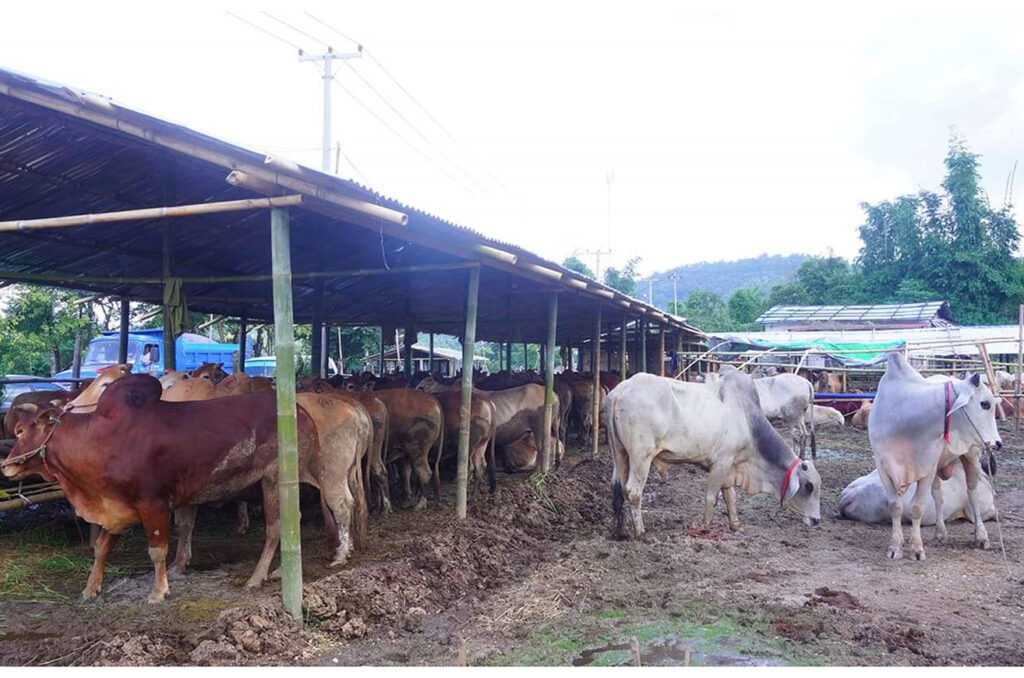06 Jan
China and Myanmar will negotiate on legitimate export of cattle in January-end, prompting the exporters to keep waiting for positive outcomes to send about 15,000 heads of cattle stranded in Muse to China, according to the Mandalay Region Cattle Exporters Association.
“The cattle are still stranded in Muse. We are anticipating G-to-G pact for legal export. For now, the exporters are still struggling,” Chair U Soe Naing of the exporters association affirmed.
“Last early December, about 70 companies of cattle stranded in Muse arranged to bring the cattle back to their home owing to the burden of labour wages and high feedstuff cost. The association stopped them to wait for another month,” he continued.
About 15,000 heads of cattle, owned by 150 companies, are stranded in Muse border as China stopped purchasing cattle. The labour wages and feedstuff cost burden them. It costs K400,000-600,000 to take care of 100 heads of cattle every day.
China permits live cattle import only after ensuring the cattle is free from 20 diseases, including Foot and Mouth Disease, along with vaccination certificates, health certificates, and farming registration certificates. Therefore, the officials concerned from the two countries are negotiating this.
Earlier, 1,500-2,000 heads of cattle were daily traded through Muse border. With China stepping up border control as precautionary measures for the COVID-19 and other reasons, it was over three months that China halted cattle trade, the association stated.
“In the meantime, we are concerned about possible market manipulation when the supply is surpassing the demand. Additionally, Myanmar’s live cattle export relies heavily on the China market due to a reasonable price. However, Myanmar has other external markets such as Laos, Thailand, Malaysia and Bangladesh,” said U Soe Naing.
The Ministry of Commerce grants a permit to each company for 100 cattle export, and the permit is valid for three months. The companies can be taken legal actions if they do not sell the cattle during the three months.
Live cattle export was allowed in late 2017, to eradicate illegal exports, creating more opportunities for breeders and promoting their interests.
Myanmar has around 500,000 heads of cattle for export beyond domestic consumption, the association stated.
By Nyein Nyein (Translated by Ei Myat Mon)



